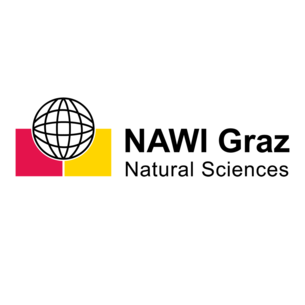Quick Facts
- Duration of study: 4 semesters
- ECTS credit points: 120
- Academic degree: Master of Science (MSc)
- Language of instruction: German
The Master's Programme
Today, with just a single mouse click, we can get a picture of almost any place in the world. In the Master's degree programme in Geospatial Technologies, you learn how to use technologies to collect, evaluate and transform geoinformation into images. You will combine geographical and geodesic methods with current information technologies.
In the Master's degree programme in Geospatial Technologies, you will acquire the following knowledge and skills:
- You will learn how to collect, analyse and present spatial information.
- You will deepen your knowledge in the areas of geoinformatics, remote sensing, cartography, navigation and location-based services.
- You will record, model and analyse processes that occur the Earth's surface, e.g. the development of cities and metropolitan areas.
- You will consider the Earth's surface as a system composed of many different subsystems (e.g. biosphere and hydrosphere).
- You will answer environmentally relevant questions and solve problems, identify environmental changes and make forecasts for the future.
- You will learn how navigation and positioning systems function and how to apply them.
- You will acquire knowledge in the subjects of data acquisition, data management, data processing and data refinement.
- You will develop methods, algorithms and software to perform the computer-aided analysis of geodata.
- You will collect, manage and process geodata for data services, e.g. for applications such as Google Earth or vehicle navigation systems.
- You will learn to think of the world as a series of networks and apply geospatial technologies to other branches of science.
- You will work on current research projects to ensure that your training is up to date.
Focus Areas
During your studies, you will complete five compulsory modules and a mandatory internship. You will also deepen your knowledge in three elective modules. The degree programme has an international orientation, and many courses are held in English.
The compulsory modules are:
- Geodesy (including geomathematics and computer science) or geography
- Data acquisition: This involves the evaluation, integration and utilization of spatial data from different sources, e.g. commercial data & open data.
- Analysis techniques in geographic information systems (GIS) and remote sensing
- Remote sensing applications, including navigation systems and location-based services
- Visualization of geodata with a special consideration of new media and methods
The three elective modules are:
- Geographic Information Systems (GIS) and Data Modelling - including modelling and monitoring in the areas of climatology and hydrology
- Remote Sensing and Measurement Systems - including mobile mapping, image measurement and terrestrial laser scanning
- Advanced Software – involving in-depth computer science
As part of your master’s thesis work, you will solve a problem in the area of geoinformation, remote sensing, or navigation.
Geospatial Technologies in Practice
Geoinformation, which relies on modern data technologies, plays a role in our everyday lives and not only when we use Google Maps to plan the best route.
Digital geoinformation shapes the world we live in. Those responsible for making political and business decisions depend heavily on reliable geodata in order to make careful use of our land.
Geoinformation data enables us to track forest growth and can give us early warnings of landslides and rockfalls. These data help us monitor the Arctic ice sheets as well as the global distribution of CO2 emissions. And they tell farmers when irrigation systems need to be activated.
However, the current geospatial data also provide critical information regarding where best to build shelters during large migration movements to ensure safe housing for refugees.
Admission
1. Admission Procedure
Graduates of the Bachelor's Degree Programme in Geodesy at TU Graz are admitted without having to fulfil further requirements. Admission without conditions is also possible for graduates of the following degree programmes:
- Geography, University of Graz
- Environmental Systems Science - Geography, University of Graz
- Geodesy and Geoinformation, TU Vienna
- Geomatics and Planning, ETH Zurich
- Geodesy and Geoinformation, University of Bonn
- Geodesy and Geoinformation, TU Darmstadt
- Geodesy and Geoinformation, TU Dresden
- Geomatics, HafenCity University Hamburg
- Geodesy and Geoinformatics, Leibniz University Hanover
- Geodesy and Geoinformatics, KIT Karlsruhe
- Geodesy and Geoinformation, TU Munich
- Geodesy & Geoinformatics, University of Stuttgart
- Geography, University of Vienna
- Geography, University of Innsbruck
- Geography, University of Salzburg
- Geography, University of Klagenfurt
Graduates of other bachelor's degree programmes can obtain information and apply for admission by contacting study@tugraz.at.
2. Admission
- Admission and deadlines for Austrian students who are beginning their studies at TU Graz for the first time
- Admission and deadlines for international students
- If you are or were already admitted to a degree programme at TU Graz, please come to the TU Graz Registrar’s Office in person during the admission period or contact study@tugraz.at.
Fragen zur Zulassung?
Contact study@tugraz.at
Career Prospects
Professional Fields
In our complex world, we have to be able to make informed decisions. As a graduate of the Master's degree programme in Geospatial Technologies, you will ensure that the required data is available and has the appropriate scientific quality. You will develop algorithms and software that are used to digitally process remote sensing and photogrammetry data as well as algorithms and software used in navigation systems for land, water and air applications. You will apply modern IT tools to analyse man-made changes that are occurring on Earth and develop geoinformation applications for climate research, spatial planning, environmental monitoring, mountain research, geomorphology, ecology and cartography.
Graduates of the programme:
- work in multidisciplinary teams in companies, for public authorities and in planning offices and process geodata.
- develop geographical information systems and computer-aided remote sensing tools and apply them, e.g. in national and international software companies.
- use GIS and remote sensing tools to collect geodata and to analyse complex spatial relationships.
- identify geotechnological problems and develop solutions that are used to make planning and political decisions.
- conduct research and teach at universities and non-university research institutions.

The Degree Programme in Geospatial Technologies combines geographical issues with innovative data science methods and artificial intelligence, giving you tools you need to answer current burning questions. Climate change and smart cities are just two areas of application where geospatial technologies are of enormous importance. For this reason, and the fact that this degree programme provides our graduates with unique interdisciplinary skills, they are highly sought after on the job market!



